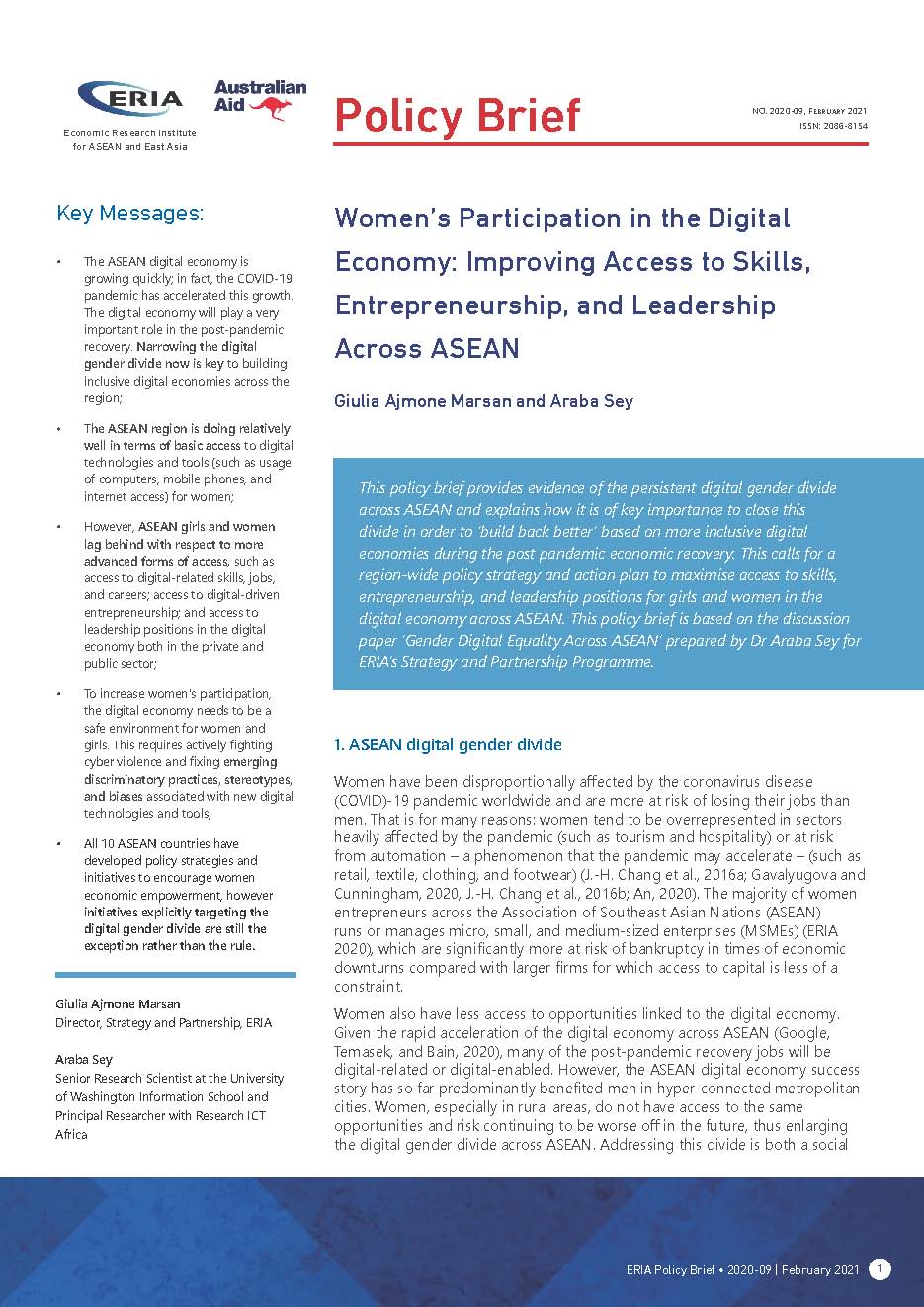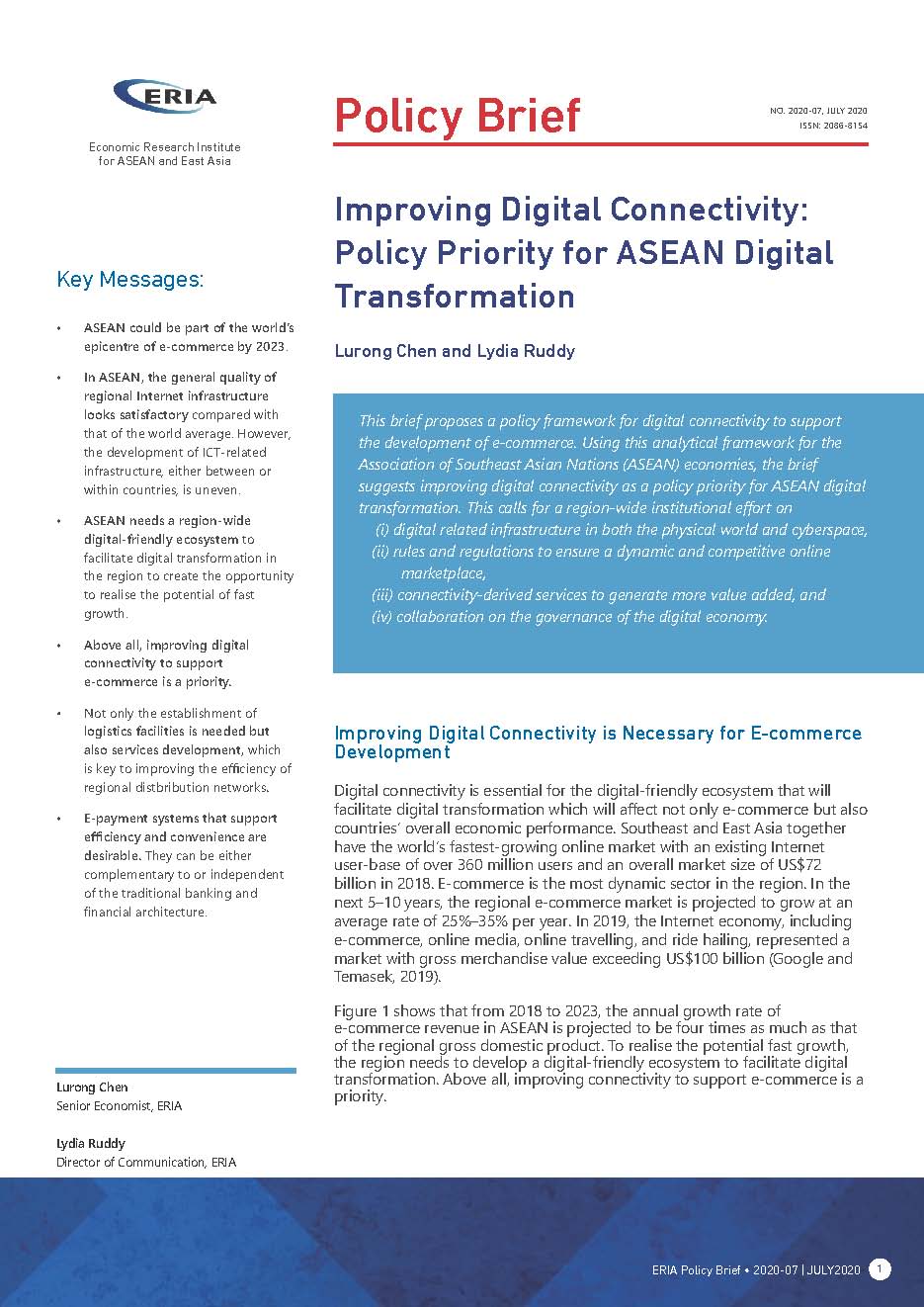Call for Proposals: Digital Government and Online Public Services: A Booster for the Digital Economy

Print Article:
Jakarta, 18 June 2021: The Economic Research Institute for ASEAN and East Asia (ERIA) is inviting research proposals for a study on ‘Digital Government and Online Public Services: A Booster for the Digital Economy’.
Interested researchers are invited to submit an extensive abstract (500 ~ 800 words) via email to [email protected] before 15 July 2021, with clearly defined:
- the title
- objective(s)/main research question(s)
- literature
- structure
- method(s)
- areas of policy implications
Deliverable
A research paper of 7,000 - 9,000 words to be published as a chapter in a book.
Background
Digital transformation in the domain of the public sector tends to extensively affect all of the sectors in a society, and moreover, have the potential to transform citizens’ conceptions of civil and political interactions with their governments. Digital government is not only a main component of digital transformation, but also a main factor that will affect its progress. It extensively affects all of the sectors in a society, and moreover, have the potential to transform citizens’ conceptions of civil and political interactions with their governments. Providing effective access to large collections of public information for citizens and officials and making them usable by the large community of users can generate significant economic and social benefits, despite the associated technical and regulatory challenges. In this regard, digital government has wider connotation than E-government.
As digital tools and new services have emerged in endless stream, leading to profound changes in the way of work, living, leisure and entertainment, digital government is not only about the government's use of information and communication technologies (ICT) solution in providing online services and e-government to the public, but also about facilitating the interaction among different stakeholders and increasing the inclusivity of decision-making. It emphasises open and user-driven approaches and operational transformations, which is more than E-government's effort on increasing transparency and setting ICT-enabled procedures in public services.
Digital government will be a new frontier of regional cooperation in ASEAN and East Asia. The consequent improvement in public services could increase the efficiency of regional supply chains and make the region more competitive in the global market.
Key dates
| 15 July 2021 | Proposal submission |
| July - August 2021 | Proposal review and selection |
| September 2021 | Online kick-off workshop Research contract |
| September 2021 - January 2022 | First draft |
| January 2022 | Online workshop |
| January - April 2022 | Final draft |
| April 2022 | 2nd workshop |
| April - June 2022 | Review and revision |
Contact
Please email Yuanita Suhud with any questions.
Terms of Reference
Digital Government and Online Public Services: A Booster for the Digital Economy




